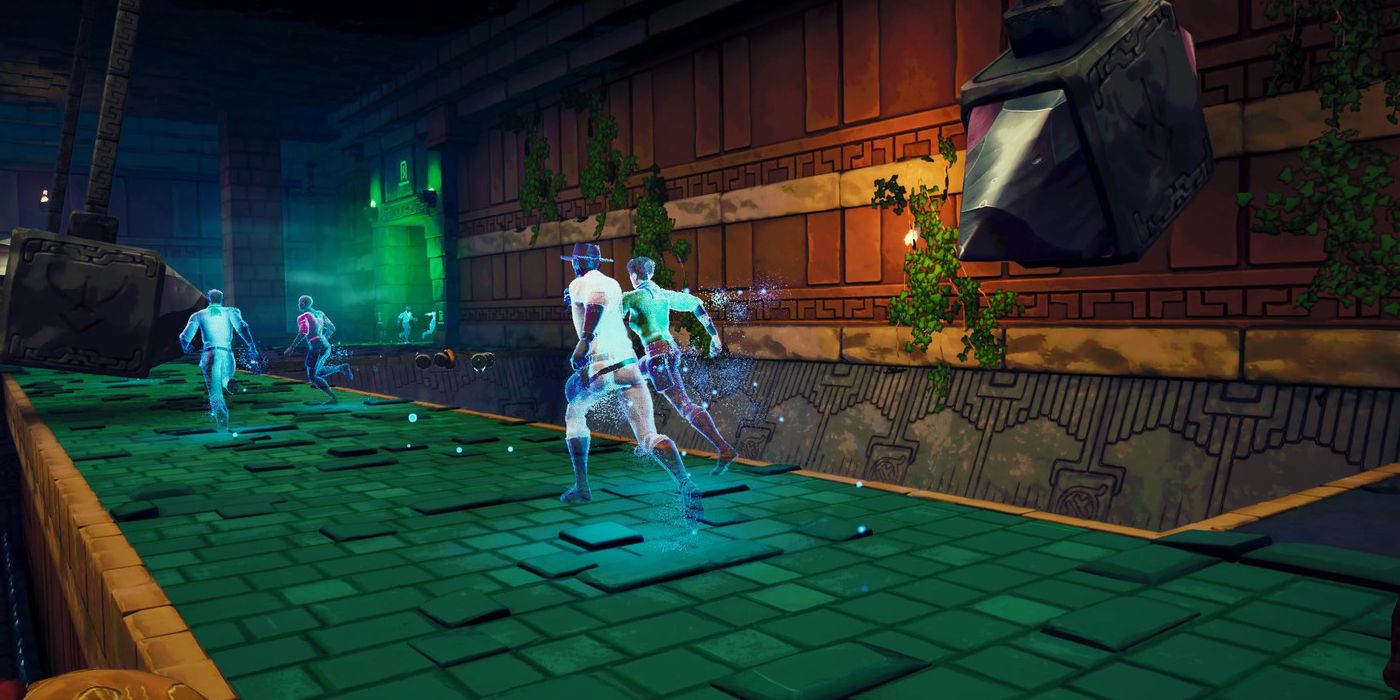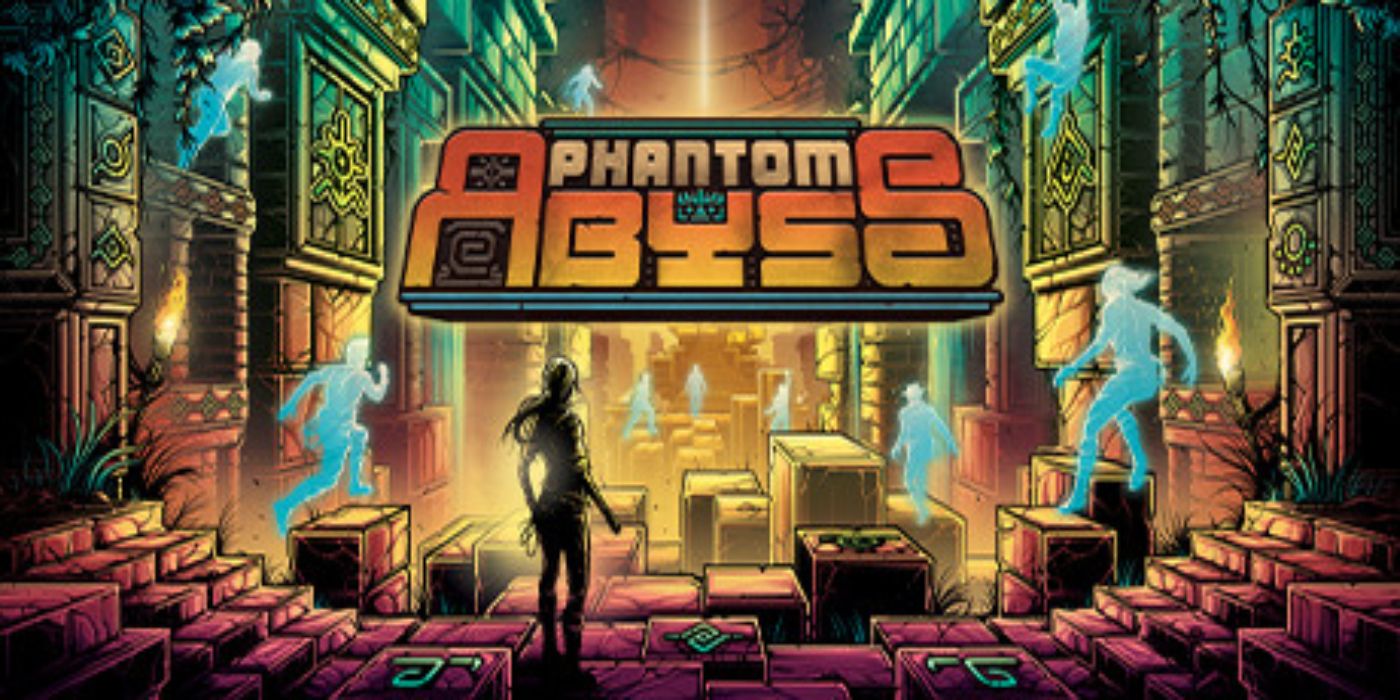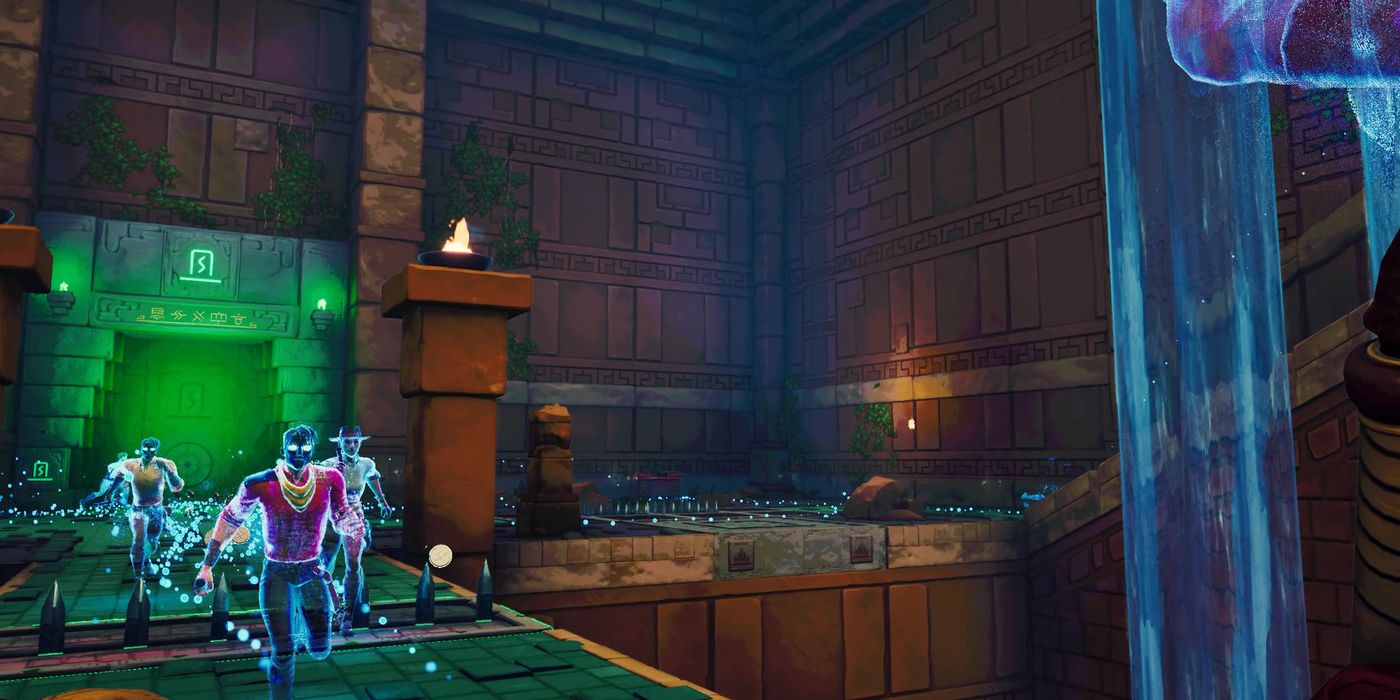
Before E3, 2021 was already set to be quite the year for gaming. During the various showcases this year, many fans were put onto games coming out that would've otherwise flown under the radar. One of the indie hits that got some spotlight was the new action-adventure game, Phantom Abyss. This asynchronous multiplayer title lets players try their skills in a series of procedurally generated temples that increase in difficulty. In Phantom Abyss, the player only has one chance to complete that specific temple, and if they fail, a phantom showing their attempt will be trapped and watchable to all other players as a warning.
The game traps players in a temple with an impatient guardian, and they are tasked with collecting artifacts in order to grow the large totem's power and eventually release themselves from purgatory. What follows is a series of levels that increase in complexity and difficulty, all protected by floating Guardians who wish to see the player dead. As the player collects treasure, they will gain access to power-ups and blessings that can make each new trip easier. If the basic temples become too easy, the player has the option to enter an even harder location instead of immediately collecting the first relic.
RELATED: Undertale: Piano Puzzle Solution

There have been enough successful rogue-like games to prove the popularity of the genre. The typical markers are procedurally generated levels that pose new challenges, the ability to upgrade and enhance oneself to make the trial easier, and some kind of marker to show off the achievements made thus far. Phantom Abyss evolves off these concepts from its predecessors and does so well. Each new temple feels like a unique experience, even if the player is able to notice a few similar rooms across their playthroughs.
In Phantom Abyss, every new temple is procedurally generated and poses unique surprises for each new adventurer. Each new adventurer also changes, with the player's character model becoming someone new with each death. As players are able to travel through the temples and collect relics, they will also begin to see a new variety of whips showing up in their temple base. These allow for buffs like healing in water but comes with nerfs like the player loses health when they try to buy a blessing. Blessings are purchasable upgrades after each level of the temple using gold found in the dungeon.

Phantom Abyss achieves all of the things that past rogue-likes did successfully but has also added some new flavor to the mix. Unlike other games in the genre, Phantom Abyss only gives the player one chance to get all the way through the temple and collect the relic, and only one person will ever be able to complete that temple.
This allowed for the developer to create a unique multiplayer environment where the player can see the phantoms of the adventurers that came before them all the way until their death. If the player dies in the temple, not only will their phantom be trapped with the others, but they will also lose their whip and any loot they had gathered during that run. It remains trapped in the temple until another player can claim the relic and return the other players' stuff. This creates a really meaningful multiplayer experience without the players ever having to truly interact with one another.
Phantom Abyss isn't an overly complicated game, but what it does, it does well. Each new challenge feels real and each hit stings a little more when the player realizes it could be the end of their only opportunity. Watching the phantoms circle around the player is interesting, and helps provide new routes that they might not have considered before. This evolution on the standard rogue-like is innovative and sets the stage for other new takes on the genre.
Phantom Abyss is out now for PC on Steam.
MORE: Tribes of Midgard Proves that It Takes a Village (To Kill a Giant)

